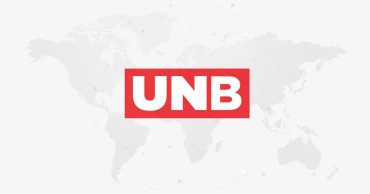F-commerce Problems in Bangladesh
F-commerce in Bangladesh: Problems and Prospects
Bangladesh has increased a surge in digitization in every sphere. The increased connectivity has made access to smartphones and the internet more affordable and easier than ever. This has paved the path for different social media engagements like Facebook. The connected nature combined with a robust user base has given rise to the F-commerce ecosystem. So, where does Bangladesh stack up in the F-commerce scenario? What are the problems and prospects? We take a deeper look at this article.
What is F-commerce?
F-commerce is the short form of Facebook commerce. Globally there are 2.85 billion active Facebook users. That accounts for around one-third of the total population of the world. Almost a billion of them are regular users who log in at least twice every week. The increased user base has prompted the use of the platform as a business space which soon transitioned into small to medium scale businesses.
There are about 46 million active Facebook users in Bangladesh. The high user base has promptly encouraged small businesses to take up the platform as a marketplace. There are about 2000 dedicated eCommerce platforms in Bangladesh whereas there are over 300000 F-commerce pages doing business.
Read Potential of e-commerce hemmed in by bottlenecks
Due to lack of regulation, a large portion of the business goes unaccounted for. However, out of a total of 7000 crores BDT worth of eCommerce sales, F-commerce accounted for over 1000 crore BDT in sales. This is a testament that Bangladesh is slowly making the transition to the F-commerce revolution.
Problems facing F-commerce in Bangladesh
A high tariff on import
Most of the F-commerce platforms in Bangladesh are import-based resellers. Most of the products are sold on a pre-order basis or niche customer base. As a retail importer, they face high import tariffs which are driving the cost up at the customer level. This price is not regulated at all and different vendors sell the same product at a different price which is a detriment for the customer.
Logistics
Another prime problem facing F-commerce is the lack of logistical support. Unlike the large eCommerce platforms of Bangladesh, the F-commerce businesses don’t have a dedicated shipping mechanism. As a result, they are forced to rely on local couriers and delivery partners. The third-party shipping method further drives up the cost in the customer end in the form of delivery charges.
Read 8 Mistakes to Avoid in a New Ecommerce Startup in Bangladesh in 2021
No legal framework
There is no legal framework to regulate the F-commerce sites. There are over 300000 Bangladeshi pages on Facebook alone doing business in various niches. The different regulations and permission required to set up a business don’t apply as there is no regulatory authority overseeing the entire process. As a result, there is no limitation to price competency, product regulation, and customer end experience.
Lost revenue
The government is losing a huge amount of revenue in the form of tax from the F-commerce platform. With the absence of regulatory bodies, there isn’t even an appropriate estimation of the number of operating F-commerce pages. These pages are doing business of over 300 crores. The pandemic caused a paradigm shift in business conduction as more and more people are getting inclined to online shopping. There has been a reported increment of over 70% to 80% increment in sales across the board. However, the government doesn’t receive any form of GST or sales tax from these pages.
Read The SWAP story of Bangladesh's first reCommerce startup
4 years ago

